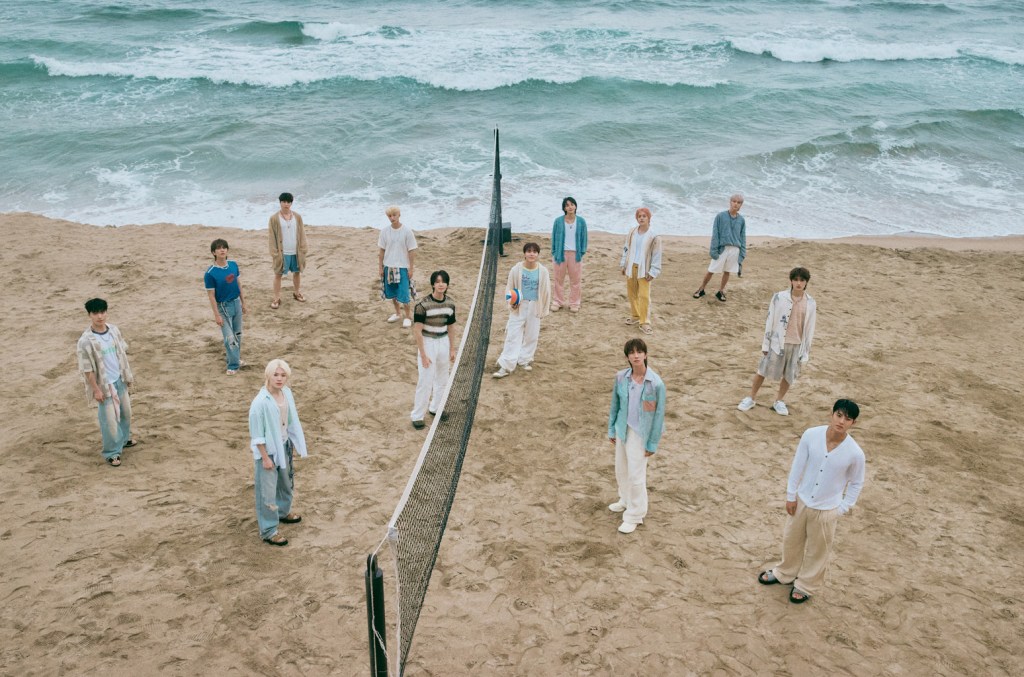International
Page: 12
A “datapocalypse” hit the music industry this week as both the RIAA and IFPI reported 2024 numbers, following MIDiA Research’s annual tally a week earlier — and all three agreed that growth slowed in 2024. The IFPI’s figures and rankings of top markets revealed the rise of emerging markets, while the U.S.-focused RIAA figures revealed that growth in the United States was particularly weak (although not the worst in the world).
The trends seen in these reports have consequences for the global music industry. Companies follow opportunities, and emerging markets are attractive places to put resources. In November, Billboard published a story about major labels’ pivot in investment strategy from tech startups to old-school music companies in small and developing markets. As majors face slowing growth in mature markets, they’re looking for growth elsewhere — especially China, India and Africa. Independent companies such as Believe have long pursued markets around the world, too, betting on the rise of streaming and the increasing popularity of local music.
Trending on Billboard
The trio of reports underscore that slow streaming growth in many markets will need to be addressed. To that end, labels are already working to improve payouts through super-premium tiers that carry higher prices and working with streaming platforms to ensure “professional” artists get better remuneration than hobbyists, background noise and nature sounds. Ridding streaming platforms of AI-generated tracks will also improve labels’ payouts.
The reports differ because they represent different types of income. The IFPI reports trade revenue — the money collected by distributors and record labels — while much of the RIAA’s report shows the retail value, or the money collected by streaming platforms and retailers. In addition, the RIAA numbers cover only the U.S. while the IFPI and MIDiA reports track the global business. MIDiA Research includes additional revenue streams not found in RIAA or IFPI reports: expanded rights, which includes merchandise, sponsorships and other revenue that does not originate from master rights; and production music, which is growing in importance in music licensing but is typically outside the purview of record labels.
Following are the four main takeaways from the three reports.
Emerging Markets Were the Story of 2024
The most established markets mostly kept their place in the pecking order, but there was one momentous change in 2024. In a sign of the times, Australia, which ranked No. 10 on the IFPI rankings in both 2022 and 2023, was replaced by Mexico. While Australia improved 6.1%, Mexico expanded 15.6% thanks to a huge improvement in subscription revenue. In fact, the Latin America region grew an astounding 22.5%. Brazil, the No. 9 market, grew 21.7% — the fastest rate in the top 10.
Despite having a relatively small population of approximately 27 million, Australia has historically punched above its weight in music spending. The country ranked No. 6 in both 2014 and 2015 before falling off the top 10 in 2024 for the first time in nearly three decades. Meanwhile, Mexico — which had never cracked the top 10 before now — has roughly 130 million people, a booming streaming market and a flourishing music scene.
To be fair, Mexico is more of a mid-tier market than an emerging market. In terms of IFPI rankings, the country is emerging only in the sense that it “emerged” into the top 10. But it has a lot in common with emerging markets, including high growth rates and ample room for more subscriptions. In mature markets, subscribers are becoming harder to find.
China held firm at No. 5, its same ranking as the previous two years. With the world’s largest population and a fast-growing subscription streaming market, the country has risen from No. 7 in 2019 and No. 10 in 2017. Its largest music streaming company, Tencent Music Entertainment, finished the year with 121 million subscribers — more than all the streaming subscribers in the U.S.
In terms of pure growth rate, the top regions were the smaller Middle East-North Africa (MENA) and Sub-Saharan Africa, which grew at 22.8% and 22.6%, respectively.
Prior to 2024, the same markets had appeared in the top 10 for the last decade, sometimes in a different order. In 2017, China and Brazil entered the top 10, knocking out Italy and the Netherlands. Brazil had been in the top 10 in previous years but was absent in 2016. Now, with Mexico and emerging markets surging, we may be seeing a bigger shakeup in the top 10 in the future.
U.S. Growth Underperformed Nearly Every Other Market
In a business where year-over-year growth has become commonplace, the large, mature music markets don’t have the appeal of the smaller, fast-growing ones. So, while the U.S. remained the world’s largest market — by a wide margin — its revenue growth didn’t even keep up with 2024’s 2.9% inflation rate (depending on which numbers you’re looking at).
U.S. revenue growth slowed to 2.2% according to the IFPI report, or 3.2% according to the RIAA report. Together, the U.S. and Canada, which grew 1.5% in 2024, accounted for 40.3% of global revenue but grew just 2.1%, according to the IFPI report. Japan, the world’s second-largest market, dropped 0.2% as a 5.5% increase in streaming — led by a 7.2% gain in subscription revenue — was offset by a 2.7% decline in physical revenue. South Korea, the No. 7 market, fell 5.7%. The total Asia region grew 1.3%, however, in part due to China increasing 9.6%.
Some other major markets fared better than the U.S. As Billboard previously reported, U.K. revenues increased 4.8% and Germany rose 7.8%.
Subscriptions Are Stronger Than Ever
Subscriptions are the lifeblood of the record industry, accounting for more than 74% of global streaming revenue and 51.2% of total revenue in 2024, up from 49.1% in 2023, according to the IFPI. Of the global industry’s $1.4 billion added in 2024, $1.3 billion came from subscription streaming.
That said, the U.S. subscription market slowed considerably in 2024. Global subscription revenue rose 9.5% to $10.46 billion — almost double the 5.3% growth rate in the U.S., according to the RIAA. That 5.3% gain was half of 2023’s 10.6% improvement and well under 2022’s 7.2% growth (the 22.2% subscription growth seen in 2021 was a fortunate aberration of the pandemic). While a reversion to the mean was expected in successive years, 5.3% isn’t much, especially in a year when Spotify raised prices.
Ad-Supported Music, On the Other Hand…
Global ad-supported streaming grew just 3% to $3.62 billion, according to the IFPI. That’s a paltry number given the growth of streaming in large emerging markets such as India and Indonesia. But 3% global growth outperformed the U.S., where the RIAA report showed that ad-supported streaming dropped 1.8% and hasn’t had a double-digit gain since 2021.
For all the popularity of subscription music services, consumers will continue to use ad-supported platforms — video platforms like YouTube, social media apps like TikTok and radio services such as Pandora. And for freemium services such as Spotify, the ad-supported tier is a critical gateway to the premium tiers.
But the state of the economy suggests advertising dollars could be difficult in 2025, too, as advertisers tend to pull back their spending at the first signs of an economic slowdown. SiriusXM CFO Tom Barry, speaking at a banking conference on March 11, said advertising started “to see a drop-off” in previous weeks following the Trump administration’s tariff threats. “I would say we’re cautious about where the ad industry is going right now,” he warned.
Shakira‘s series of concerts in Mexico as part of her international tour Las Mujeres Ya No Lloran (Women Don’t Cry Anymore) marked her highly anticipated return after a seven-year absence and earned the Colombian superstar several unprecedented records. The tour also set a historic precedent by boosting tourism and generating millions in economic revenue across the three major cities of the country, which has the second-largest economy in Latin America after Brazil.
Among the many achievements La Loba accomplished in Mexico with her seventh and most ambitious international tour, the sale of 645,000 tickets for her 11 scheduled concerts stands out, according to figures from promoter OCESA. Of those tickets, 455,000 were for seven shows at Mexico City’s Estadio GNP Seguros (March 19, 21, 23, 25, 27, 28, and 30), marking the highest number of performances by any artist at this iconic venue (formerly known as Foro Sol), which has hosted stars like Paul McCartney, Coldplay, Taylor Swift, and Metallica.
Trending on Billboard
Additionally, 90,000 tickets were sold for her two concerts at the Estadio Akron in Guadalajara (March 16 and 17), while another 100,000 corresponded to two dates at the Estadio BBVA in Monterrey (March 12 and 13), where the Mexican leg of her tour kicked off.
Ticketmaster México reports that 2.5 million people visited its website to search for tickets to Shakira’s concerts since the tour was announced in the country last October, according to data provided to Billboard Español. This makes her the most searched act on Ticketmaster over the past year, according to the ticketing company.
“Of the 90,000 tickets sold for Estadio Akron, 37,000 were purchased outside the city, which implies tourism,” Gustavo Staufert, general director of the Guadalajara Visitors and Conventions Office (OFVC, by its acronym in Spanish), told Billboard Español, citing figures from OCESA and Ticketmaster México. “If we talk about double hotel occupancy, we’re looking at 40,000 rooms per night, which would generate around 80 million pesos (approximately $4 million) in direct revenue for hotels, and an estimated tourism revenue of 900 million pesos (approximately $44.4 million).”
The tour supporting Shakira’s album Las Mujeres Ya No Lloran has generated significant buzz in the Mexican destinations it has reached. Mexico City serves as the epicenter of the Latin American leg, where the seven scheduled shows at the Estadio GNP Seguros are expected to generate an estimated economic impact of 5.5 billion pesos (approximately $275 million), according to data from the CDMX Secretariat of Tourism provided to Billboard Español. “That figure only accounts for lodging, restaurants, and nightlife venues; it does not include revenue from ticket sales,” clarified Mexico City’s Tourism Secretary, Alejandra Frausto, in an interview.
In Mexico City, the show by the “Antología” singer is also generating around 20,000 jobs in logistics, security, transportation, and production, benefiting workers across various sectors such as hospitality, restaurants, and airlines, as well as street vendors and small businesses near the venues, noted Frausto.
According to data from Ticketmaster, between 30% and 40% of attendees at Shakira’s concerts in Mexico travel from another state in the country to one of the three cities hosting the shows. A request for information from Billboard Español to the Nuevo León Secretariat of Tourism and the Nuevo León Tourism Development Corporation (Codetur) regarding the economic impact of Shakira’s visit to Monterrey had not been answered at the time of publication.
A world-class show that “is worth it all”
To follow Shakira’s tour across Mexico, “her pack” goes to great lengths. That’s the case of Édgar Lima, a chemical engineer from Mexico City, who will attend all 11 dates his idol is performing in the country. In an interview with the newspaper Reforma, the young fan shared that he spent nearly 80,000 pesos (about $4,000) just on tickets, adding another 12,000 pesos (approximately $600) for transportation and accommodation in Guadalajara and Monterrey.
Experts point out that hosting shows featuring major music stars like the Colombian superstar not only mobilizes her fans but also brings benefits to the local economy and strengthens connectivity between national and international destinations.
The travel company Despegar, a sponsor of the tour, reported a significant increase in interest for flights and accommodations in the three main Mexican cities included in the tour, with an average growth of 43% during the concert dates (March 12 to 30). “Monterrey stood out with a 66% increase in hotel demand,” the company detailed in a statement.
The company added that most travelers to these cities came from Mexico City, Veracruz, Chihuahua, Mérida, and Cancún. Meanwhile, Frausto noted that Mexico City welcomed visitors from across the country, as well as international travelers from the United States, El Salvador, Colombia, and Peru.
A curious fact brought by the Colombian artist’s visit to Mexico was an increase in hotel and lodging reservations in the three Mexican cities hosting *Las Mujeres Ya No Lloran* coming from Las Vegas. “Tourism and music have always been connected, and Shakira’s return to Mexico is a clear example of how major events drive traveler mobility,” said Santiago Elijovich, VP & Country Manager Mexico at Despegar, as quoted in the statement.
Édgar Lima claims that every peso spent on attending Shakira’s 11 concerts in Mexico is worth it. “I believe she puts on a world-class show, and seeing them all makes me think that every investment is worth it and that every peso spent was the best decision I could make.”
For the first time ever, Mexico has entered the top 10 global music markets, the International Federation of the Phonographic Industry (IFPI) has confirmed to Billboard Español. The milestone was driven by a 15.6% increase in recorded music revenue, as revealed in the IFPI’s 2025 Global Music Report published Wednesday (March 19). Mexico’s climb to No. […]
It’s a few days late to tie in with St. Patrick’s Day, but U2 are the first Irish songwriters to be named Ivors Academy Fellows. They are the second group to receive the honor, following Bee Gees.
Ivors Academy Fellows is the highest honor that the organization, best known for their annual Ivor Novello Awards, bestows. The award will be presented at this year’s The Ivors with Amazon Music event at Grosvenor House in London on Thursday May 22. This year’s Ivor Novello Award nominees will be announced on Wednesday April 23.
With U2’s inclusion, the total number of Fellows rises to 32. This counts U2 (Bono, The Edge, Adam Clayton and Larry Mullen Jr.) as four individuals and Bees Gees (Barry, Maurice and Robin Gibb) as three. Most of the honorees (see full list at the end of this story) have hailed from Britain, though the roster also includes American composer/conductor John Adams, American rock singer/songwriter Bruce Springsteen and French composer/conductor Pierre Boulez.
Trending on Billboard
Formed in Dublin in 1978, U2 is one of the greatest songwriting partnerships and most influential bands of all time. The band has amassed eight No. 1 albums on the Billboard 200 and two No. 1 hits on the Billboard Hot 100. U2 is the only band to have a No. 1 album on the Billboard 200 in four consecutive decades (the 1980s through the 2010s).
U2 has won 22 Grammy Awards, far more than any other group in history. This tally includes four wins in songwriting categories: two for song of the year (for “Beautiful Day” and “Sometimes You Can’t Make It on Your Own”) and two for best rock song (for “Vertigo” and “City of Blinding Lights”).
In addition, the band members have received two Oscar nominations for best original song, for “The Hands That Built America” (from Gangs of New York) and “Ordinary Love” (from Mandela: Long Walk to Freedom).
U2 has won four Ivor Novello Awards – the Special Award for International Achievement in 1994, Best Song Musically and Lyrically for “Walk On” in 2002, Outstanding Song Collection in 2003 and International Hit of the Year for “Vertigo” in 2005.
Other prized songs by U2 include “I Will Follow,” “Pride (In the Name of Love),” “I Still Haven’t Found What I’m Looking For,” “With or Without You” and “One.”
“To be recognised in this way by The Ivors Academy feels very special indeed,” U2’s Adam Clayton said in a statement. “The appreciation of one’s peers is a humbling honour and we are immensely grateful. We’ve been playing our songs in this country for over 45 years, thank you to all those who have not just supported us, but carried us… producers, engineers, crew, fans, management, label.”
Bandmate Larry Mullen Jr. added: “Making music collectively, as we’ve done for close to 50 years, has been an incredible experience and privilege for the four of us and I believe it’s a testament to a band that values individual creativity and independence of mind. We are grateful to each other and very grateful to The Ivors Academy for recognising us with this award.”
Tom Gray, chair of The Ivors Academy said in a statement: “With fearless poetic lyricism always centre-stage in panoramic musical vistas, the sound of U2 has redefined the fabric of popular music. Their songs are sweeping catalysts: hymnals and rallying cries. U2’s induction into Fellowship honours their seminal contributions to music through exceptional songwriting craft.”
Roberto Neri, CEO of The Ivors Academy, added: “We are proud to welcome U2 to Fellowship of The Ivors Academy as era-defining songwriters whose legacy continues to propel musical innovation and inspire social progress. As U2’s politically charged anthems have sparked global change, The Ivors Academy is committed to championing creative integrity with the same unwavering passion. At a time when AI threatens to undermine human creativity, U2’s Fellowship stands as a testament to the irreplaceable role of songwriters and composers in shaping culture and inspiring change.”
U2’s many other awards include the Kennedy Center Honors in 2022 and Amnesty International’s Ambassador of Conscience award.
Here’s a full, updated list of Fellows of the Ivors Academy. Notes: Multiple honorees in a single year are listed alphabetically. Paul McCartney’s team prefers not to list him with his Sir honorific.
2000: Paul McCartney
2001: Sir Malcolm Arnold CBE, John Barry OBE
2004: John Adams, Sir Elton John
2005: David Arnold, Pierre Boulez CBE, Sir John Dankworth CBE, Sir Peter Maxwell Davies CH CBE
2006: Sir Barry Gibb CBE, Maurice Gibb CBE, Robin Gibb CBE
2007: George Fenton
2009: Don Black OBE, David Ferguson
2010: Sir Tim Rice
2012: Sir Andrew Lloyd Webber
2015: Annie Lennox OBE
2020: Joan Armatrading CBE, Julian Joseph OBE
2021: Kate Bush CBE
2022: Peter Gabriel, Judith Weir CBE
2023: John Rutter CBE, Sting
2024: Sir James Macmillan, Bruce Springsteen, Errollyn Wallen
2025: Bono (Paul Hewson), Adam Clayton, The Edge (Dave Evans), Larry Mullen Jr.
MADRID — After a successful First Spanish Music Encounter at the WiZink Center in 2024, Billboard returned to Madrid on Tuesday (March 18) with “Leaders of Music in Spain,” an event that reaffirms its commitment to the country’s music scene. The cocktail event, held at the Hotel VP Plaza España Design, gathered more than a hundred executives, artists, and key industry figures to strengthen ties and boost the global projection of Spaniard music.
Among the attendees were Pino Sagliocco, president of Live Nation Spain; José Luis Sevillano, CEO of AIE; Sandra García-Sanjuán, executive president of Grupo Starlite; Claire Immoucha, head of Amazon Music Spain; Mar García, marketing director of Warner Music Spain; Narcis Rebollo, president/CEO of global talent services at Universal; and José María Barbat, president of Sony Music Iberia. Artists like Rosana, Lela Soto, Natalia Lacunza and Álvaro de Luna also joined the event, sharing their thoughts on the present and future of music in Spain.
On Billboard‘s behalf were Leila Cobo, chief content officer for Latin/Español; Pamela Bustios, senior chart and data analyst for Latin/Español; and Marcia Olival, sales director for US Hispanic, LATAM, and Iberia.
“I’ve always said that Billboard is a bridge between Spanish-language music and the Anglo market. We tell these stories to an audience that doesn’t speak Spanish, but also in Spanish, and with Spain, this idea of a bridge is literal,” Cobo emphasized during the event. “Spain has more streams than ever, ticket sales are extraordinary, and it’s the world’s top music tourism destination. We want to amplify what you do, celebrate you, and be part of your story.”
This expansion of Spaniard music beyond its borders is a reality that resonates within the industry. Alicia Arauzo, general manager of Universal Music, highlighted the importance of these networking spaces to continue building international connections. “Without a doubt, these are great initiatives because, in the end, that’s what it’s all about: Spanish artists are going further and further. It’s something that didn’t happen years ago, and it’s fantastic to be able to cross bridges and have our music reach other territories,” she said.
José María Barbat, president of Sony Music Iberia (left) and Bernardo Miranda, vp A&R at Sony Music Iberia during Billboard’s “Líderes de la Música en España” event on March 18, 2025 in Madrid.
Aldara Zarraoa
Held at the Ginkgo Sky Bar — with panoramic views of the Royal Palace, the Almudena, and Plaza de España — the gathering served as a space for networking and dialogue about the industry’s challenges and opportunities.
In conversation with Billboard, Melanie Parejo, head of music for Spotify in Southern and Eastern Europe, emphasized Spain’s importance as a key point within the global ecosystem. “Billboard anchors here, in a country that is the gateway to Europe,” she noted. “Spanish-language music is more interconnected than ever. Gen Z doesn’t care if an artist is from Tenerife or Venezuela, and that’s incredibly powerful.”
For attendees, Billboard‘s presence in Spain represents a validation of the market’s growth and international projection. Rosana, one of the invited artists, expressed her gratitude. “Billboard opened its doors to me 15 days after releasing my first album in the U.S. and Latin America. Now that it has decided to come here, all they makes me want to do is make them feel at home,” she said.
From the business side, Blanca Salcedo, general manager of Sony Music Spain, highlighted the importance of the visibility provided by the platform. “I’d love for this to happen more in Spain,” she said. “The digital world has achieved unity and eliminated barriers.”
Attendees listen to Leila Cobo during Billboard’s “Líderes de la Música en España” event on March 18, 2025 in Madrid.
Aldara Zarraoa
For Álvaro de Luna, being part of this celebration was a personal milestone: “Seven years ago, I wouldn’t have imagined being mentioned in anything related to Billboard. It’s a dream.”
The event was made possible thanks to the support of Hotel VP Plaza España Design, Mahou, AIE, Santander SMusic, and Tequila Patrón, which prepared the evening’s special cocktail, the Paloma Patrón.
With “Leaders of Music in Spain,” Billboard continues to bet on strengthening its presence in the country and amplifying the impact of Spanish music globally. “We have total commitment to Spanish-language music, to Spain, and to its industry,” concluded Cobo.
LONDON — Global music sales grew for the tenth consecutive year in 2024 but the risk of generative AI systems using copyright-protected music to freely train their systems poses “a very real and present threat” to the future of the industry, warn record executives.
Total recorded music revenues climbed to $29.6 billion in 2024, a rise of 4.8% on the previous year, according to the International Federation of the Phonographic Industry’s (IFPI) Global Music Report 2025, published Wednesday (Mar. 19).
Driving the growth was a strong increase in paid streaming subscription revenue, which rose 9.5% to $15.2 billion, while total streaming revenues, comprising of paid subscription and advertising-supported tiers, rose 7.3% year-on-year to $20.4 billion, representing 69% of recorded music sales worldwide.
Trending on Billboard
Although last year’s growth rate is roughly half that of 2023 (when revenues rose by just over 10%) total music sales still reached the highest level since 1999 — when IFPI first started compiling global music revenues and sales totaled $22.2 billion — on an absolute dollar basis, not accounting for inflation. Piracy and declining physical sales saw the market bottom out at $13 billion in 2014.
The subsequent recovery and decade-long growth of the global record industry is now, however, being placed in jeopardy by tech companies who want to rollback copyright protections to enable them to use music works without a license for training AI systems, caution creators and executives. Earlier this week, Paul McCartney and Paul Simon were among 400 musicians, filmmakers, writers and actors who signed an open letter to the Trump administration opposing submissions from tech companies OpenAI, Anthropic and Google who want to use copyrighted works without permission from rights holders.
In the United Kingdom, the government is consulting on proposed changes to copyright law that, if implemented, would allow AI developers to freely use creators’ content for training purposes, unless rights holders “opt out.”
“We are asking policymakers to protect music and artistry,” said IFPI CEO Victoria Oakley in a statement accompanying the Global Music Report. “We must harness the potential of AI to support and amplify human creativity, not to replace it.”
“If those [tech companies] arguing for these exceptions get their way, they can… put the existing [digital music services] out of business while paying artists and songwriters nothing. That is an incredible market distortion,” said Dennis Kooker, president of global digital business at Sony Music Entertainment, at the report launch in London.
Breaking down 2024’s global music sales, users of paid music subscriptions grew to 752 million worldwide, says the London-based organization, a rise of over 10% on the previous year. Subscription streaming revenues now account for just over 50% of global music sales.
On the physical side of the business, an 18th consecutive year of vinyl sales growth (up 4.6%) was not enough to arrest a 3.1% slide in overall physical revenues, which fell to $4.8 billion. IFPI said the decrease was partially due to a fall in physical sales in Asia, which accounts for more than 45% of all physical revenues worldwide.
In terms of market share, physical accounted for just over 16% of the overall market last year, down from 18% in 2023.
Performance rights revenue climbed 5.9% to $2.9 billion, representing just under 10% of global revenues and marking the sector’s fourth successive year of growth. Sync income was flat with 2023 at $650 million, representing a 2.2% share of the market.
Taylor Swift was 2024’s biggest-selling global artist, ahead of Canadian rapper Drake and K-pop sensation SEVENTEEN, IFPI announced last month, marking the fifth time she that she has taken the global crown and third consecutive year. Benson Boone’s Beautiful Things was last year’s biggest-selling global single across all digital formats with 2.1 billion equivalent streams.
Mexico Breaks Into Global Top 10 Music Markets, Bumping Australia
In terms of world markets, IFPI said that music revenues were up in every region and all but three of the 58 markets it tracks, with the U.S. retaining its long-held No. 1 position with music sales growing 2.2% year-on-year. By comparison, the U.S. recorded music market grew by 7.2% in 2023 and 4.8% the year prior.
The world’s second largest music market, Japan, was flat year-on-year due to a decline in physical sales, reports IFPI. The third and fourth-biggest markets for recorded music remain the United Kingdom (+4.9%) and Germany (+4.1%), respectively. China, ranked No. 5 globally, grew music sales by 9.6%. (IFPI’s free-to-access report does not provide market-by-market revenue breakdowns).
The rest of the top 10 is made up of France (+7.5%), South Korea (-5.7%), Canada (+1.5%), Brazil (+21.7%, the fastest growing top 10 market) and Mexico, which increased revenues by 15.6% to overtake Australia as the tenth largest global recorded music market.
Those cross-market gains are mirrored on a regional basis with revenues from the U.S. and Canada region up 2.1% and together representing the greatest share of global music sales at just over 40%.
Latin America — where streaming makes up almost 88% of the recorded music market — saw growth of 22.5%, once again far outpacing the global growth rate and marking the region’s 15th consecutive year of revenue growth.
Europe remains the second-biggest region for music sales, accounting for more than a quarter (29.5%) of global revenues and growing 8.3% year-on-year. In third place is Asia, where overall revenues rose by just 1.3% compared to almost 15% in 2023 due to a 4.9% fall in physical sales.
The two fastest growing regions globally were Middle East and North Africa, where streaming holds a 99.5% share of the market and which saw music sales grow 22.8%, and Sub-Saharan Africa, which recorded a 22.6% rise in revenues to surpass $100 million for the first time.
South Africa remains the largest market in the Sub-Saharan Africa region, accounting for 75% of its revenues, following growth of 14.4%. Revenues in Australasia climbed 6.4% to $629 million with Australia and New Zealand increasing sales by 6.1% and 7.8% respectively.
(IFPI uses current exchange rates when compiling its Global Music Report, restating all historic local currency values on an annual basis. Market values therefore vary retrospectively as a result of foreign currency movements, says IFPI, which represents more than 8,000 record company members worldwide, including all three major labels, Universal Music Group, Sony Music Entertainment and Warner Music Group.)
French streaming platform Deezer reported on Tuesday it had 7 million euros ($7.6 million) in free cash flow for the fiscal year 2024, having achieved break-even status for the first time in its nearly 18-year history last fall.
Founded in August 2007, Deezer has struggled to build its brand outside of its home market in France. But in recent years, it has raised prices and expanded its subscriber-base by being the streaming platform powering German broadcaster RTL, American speaker company Sonos and Latin America’s version of Amazon, Mercado Libre.
“This is an exciting milestone, and it puts Deezer in control of its own destiny,” Deezer Chief Financial Officer Carl de Place tells Billboard on becoming cash-flow positive. “We have been able to exceed our guidance and to deliver 11.8% growth thanks to a nearly 10% increase in direct revenue from France, and the revenue from our partnerships business, which grew at 24% year over year.”
Trending on Billboard
A growing number of streaming platforms have raised prices in recent years, and Deezer was at the forefront having raised subscription prices in France, its largest market, in January 2022 and other markets later in the year. After Apple, Amazon, YouTube and Spotify all followed with their own increases, Deezer raised its prices again in September 2023.
The company reported revenue increased 12% to 542 million euros ($590.8 million), above their 10% growth target. Direct revenue in France increased 9.7% from the year ago period thanks to a 4.3% increase in subscriber revenue and greater average revenue per user (ARPU). Revenue from partners white labeling its services rose 24% year over year.
While not a profitable fiscal year, the company said it saw strong improvement. Adjusted earnings before interest tax depreciation and amortization (EBITDA) for the full year was negative 4 million euros ($4.4 million), and a 21.2% increase in its adjusted gross profit to 134 million euros ($146 million), equal to a 24.7% margin. The company had 62 million euros ($67.6 million) cash in its reserves at year end.
The company plans to double-down on its brand partnership strategy, while maintaining focus on further growing its presence in France with new features allowing users to customize their feed on the streaming platform and opportunities to more directly interact with artists, de Place says.
“Profitable growth is what you should expect going forward. We are prepared to continue to deliver positive free cash flow, to reinvest in the company and also add to our reserves,” de Place says.
Beatport is growing its presence in Mexico as electronic music consumption expands on the digital download platform for DJs.
A representative for the company tells Billboard that download revenue from Mexico on Beatport increased by 25% in 2024, with the percentage of tracks downloaded increasing by 16%.
A number of electronic genres in particular saw large consumptions surges in Mexico on Beatport, with the consumption of Afro-House increasing by 105%, the consumption of psy-trance increasing by 42%, minimal/deep tech going up by 39%, house up by 32%, deep house up by 27%, melodic house and techno up by 26%, tech house up by 21% and dance pop up by 21%.
Meanwhile, Beatport Streaming subscribers in Mexico increased by 28% in 2024.
As such, Beatport is growing its presence in the country, hosting its first ever Beatport Connect summit in Mexico City this Friday, March 21. The event will bring together industry professionals, artists and fans for panel discussions, workshops and DJ sets. The event will also offer Beatport and Beatsource workshops with artists Jessica Audiffred, Zarina/SADGAL and DJ Fucci each participating in sessions focused on trends and insights in music production.
Trending on Billboard
“Mexico’s music industry is experiencing remarkable growth, with a rapidly evolving electronic music scene and passionate audience,” says The Beatport Group’s Chief Revenue Officer, Helen Sartory. “With Mexico’s digital music segment expected to surpass 26 million users by 2027, the demand for electronic music is stronger than ever. Mexico City, in particular, has earned its reputation as a ‘trigger city,’ shaping international listening habits through its substantial digital consumption. As the country continues to emerge as a major player in the global music landscape, Beatport is proud to invest in this growth.”
Beatport is now also offering subscriptions in local currency and reducing prices of Beatport and Beatsource streaming up to 40%. The Beatport site also now automatically translates into Spanish for users in Mexico, with a “Discover Mexico” page featuring fresh music from the country.
“Mexico has long been a vibrant hub for electronic music, and we’re thrilled to deepen our investment in the region,” says Sofia Ilyas, Chief Community Officer of The Beatport Group. “By launching Beatport Connect: Mexico City and lowering prices for local markets, we’re making it easier for DJs and producers to access the tools they need to create, connect, and perform. As Beatport continues to expand globally, Mexico remains a key market in our mission to provide cutting-edge tools, educational resources, and community-driven events that empower the next generation of DJs and producers.”
David Browne
British rock royalty Queen, American jazz great Herbie Hancock and Canadian soprano and conductor Barbara Hannigan are the 2025 recipients of the Polar Music Prize. The ceremony will be held on Tuesday, May 27, at the Grand Hôtel in Stockholm and is set to broadcast live in Sweden on TV4 at 8 p.m. CET.
The three surviving members of Queen – Brian May, Roger Taylor and John Deacon – said in a joint statement: “We are highly and deeply honoured to be given the Polar Music Prize this year. It’s incredible, thank you so much.”
Trending on Billboard
Hancock, 84, said: “The Polar Music Prize is a prestigious honour, and I am both thrilled and humbled to be a recipient. The Laureates who have come before me have left an indelible mark on humanity through their profound examples of inspiration and dedication.”
Hannigan, 53, said: “I am deeply moved and humbled to receive this year’s Polar Music Prize. Thank you so much for including me among this incredible and inspiring group of Laureates.”
Hancock has worked closely with previous Polar Music Prize Laureates Joni Mitchell and Wayne Shorter. Hannigan has worked with previous Laureates Pierre Boulez, György Ligeti and Esa-Pekka Salonen.
Formed in 1970, Queen are one of the most successful bands ever to have emerged from the U.K. Bohemian Rhapsody, the 2018 biopic about the band, is the top-grossing music biopic in film history. The film received four Oscars, including best actor for Rami Malek as lead singer Freddie Mercury (who died in 1991).
Queen was inducted into the Rock & Roll Hall of Fame in 2001. Queen, shockingly, never won a competitive Grammy, and received just four nominations. But the band received a lifetime achievement award from the Recording Academy in 2018.
In 1987, Hancock became the first Black composer to win an Oscar for best original score for Round Midnight. (Prince had previously won best original song score for Purple Rain.) Hancock has received 14 Grammy Awards, across R&B, jazz and pop categories. His highest-profile Grammy was album of the year in 2008 for River: The Joni Letters, a tribute to Mitchell. Hancock received a lifetime achievement award from the Recording Academy in 2016.
At the inaugural MTV Video Awards in 1984, Hancock won five awards, more than any other artist, all for the video for his instrumental hit “Rockit.” He received the Kennedy Center Honors in 2013.
Having started her career as a soprano, Hannigan turned her hand to conducting at age 40 at the Châtelet in Paris. Now, she balances both pursuits. Hannigan is principal guest conductor of the Gothenburg Symphony Orchestra and l’Orchestre de Chambre de Lausanne, and associate artist with the London Symphony Orchestra. In 2026, she will take the helm of Iceland Symphony Orchestra as their chief conductor and artistic director.
Hannigan won a Grammy in 2018: best classical solo vocal album for Crazy Girl Crazy.
Previous Polar Music Prize Laureates include Paul McCartney, Bruce Springsteen, Peter Gabriel, Chuck Berry, Ennio Morricone, Led Zeppelin, Patti Smith, Stevie Wonder, Paul Simon, Kronos Quartet, Elton John, Metallica, Iggy Pop, Ravi Shankar, Renée Fleming, Miriam Makeba, Sofia Gubaidulina and Angélique Kidjo.
The Polar Music Prize is presented at a ceremony in Stockholm in the presence of the Swedish royal family. Each Laureate will receive a cash award of one million Swedish Krona (approx. £74,082 GBP and $93,897 USD).
The Polar Music Prize awards committee is an independent, 11-member board who select the Laureates. It receives nominations from the public as well as from the International Music Council, a nongovernmental organization founded by UNESCO which promotes geographical and musical diversity.
The Polar Music Prize was founded in 1989 by Stig “Stikkan” Anderson, a legend in the history of Swedish popular music. Anderson was the manager, publisher and lyricist for ABBA, and played a key role in the quartet’s enormous global success. The prize was named after Anderson’s record label, Polar Music.
A massive fire tore through an overcrowded nightclub in North Macedonia Sunday (March 16), killing 59 people and injuring 155 in a chaotic escape during a live concert. The tragedy drew messages of support from around the world but focused national attention on corruption in the small Balkan country as authorities detained 15 people.
Explore
Explore
See latest videos, charts and news
See latest videos, charts and news
The pre-dawn blaze in the eastern town of Kocani left mostly young people dead and injured due to burns, smoke inhalation and a stampede in the desperate effort to reach the building’s single exit, officials said. People as young as 16 were among the injured, they said.
Videos showed sparkling pyrotechnics on the stage hitting the ceiling followed by scenes of chaos inside the club, with young people running through the smoke as the musicians urged them to escape as quickly as possible.
Trending on Billboard
“We even tried to get out through the toilet, to find bars (on the windows),” Marija Taseva, 19, told The Associated Press, describing the fire that erupted after watching a local pop group at Club Pulse. “I somehow managed to get out. I fell down the stairs and they ran over me, trampled me. … I barely stayed alive and could hardly breathe.” She suffered an injury to her face.
Interior Minister Panche Toshkovski said 15 people had been detained for questioning after a preliminary inspection revealed the club was operating without a proper license. He said that the number of people inside the club was at least double its official capacity of 250.
“We have grounds for suspicion that there is bribery and corruption in this case,” he told reporters without elaborating.
European Commission President Ursula von der Leyen and Ukraine President Volodymyr Zelenskyy also sent messages of support. “I wish those who were injured a speedy recovery. Ukraine mourns alongside our (North) Macedonian friends on this sad day,” Zelenskyy wrote in a post on X.
Health Ministry officials said the government had accepted offers of assistance from several neighboring countries, including Bulgaria, Greece, Serbia and Turkey, where preparations were being made to receive patients with life-threatening injuries. Paramedics from Serbia and Bulgaria also traveled to North Macedonia to help with the local effort.
Throughout Sunday, relatives gathered in front of hospitals and city offices in Kocani, some 115 kilometers (72 miles) east of the capital, Skopje, begging authorities for more information. Resident Dragi Stojanov was informed that his 21-year-old son Tomce had died in the fire.
“He was my only child. I don’t need my life anymore. … 150 families have been devastated,” he said. “Children burnt beyond recognition. There are corpses, just corpses inside (the club). … And the bosses (of organized crime), just putting money into their pockets.”
In Skopje, officials said the injured were to hospitals around the country, many being treated for severe burns and smoke inhalation. The effort was being assisted by multiple volunteer organizations.
The fire is the worst tragedy in recent memory to befall the landlocked nation, whose population is less than 2 million, and the latest in a slew of deadly nightclub fires around the world.
President Gordana Siljanovska-Davkova visited burn victims at a hospital in Skopje and spoke to parents waiting outside the building. “It’s terrible … hard to believe how this happened,” she said, her voice halting with emotion. “We must give these young people courage to continue.”
The fire caused the roof of the single-story building to partially collapse, revealing the charred remains of wooden beams and debris. Police cordoned off the site and sent in evidence gathering teams in an operation also involving state prosecutors.
Pyrotechnics have often been the cause of deadly fires in nightclubs, including the one at the Colectiv club in Bucharest, Romania, in 2015 in which 64 people died.

 State Champ Radio
State Champ Radio 









